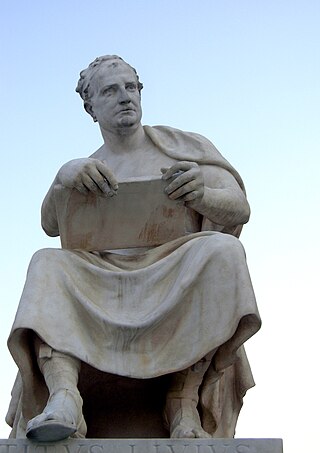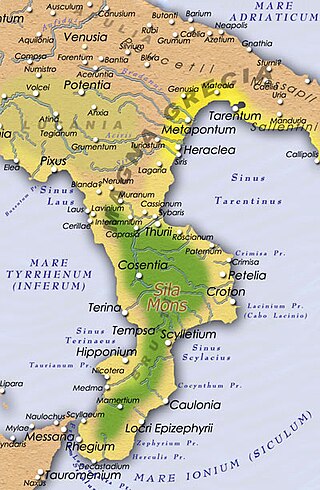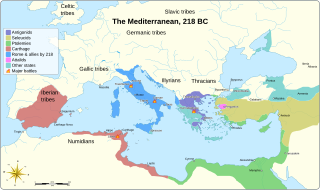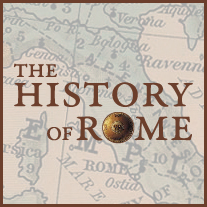
Titus Livius, known in English as Livy, was a Roman historian. He wrote a monumental history of Rome and the Roman people, titled Ab Urbe Condita, ''From the Founding of the City'', covering the period from the earliest legends of Rome before the traditional founding in 753 BC through the reign of Augustus in Livy's own lifetime. He was on good terms with members of the Julio-Claudian dynasty and was a friend of Augustus, whose young grandnephew, the future emperor Claudius, he encouraged to take up the writing of history.

Christian Matthias Theodor Mommsen was a German classical scholar, historian, jurist, journalist, politician and archaeologist. He is widely regarded as one of the greatest classicists of the 19th century. His work regarding Roman history is still of fundamental importance for contemporary research. He received the 1902 Nobel Prize in Literature for being "the greatest living master of the art of historical writing, with special reference to his monumental work, A History of Rome", after having been nominated by 18 members of the Prussian Academy of Sciences. He was also a prominent German politician, as a member of the Prussian and German parliaments. His works on Roman law and on the law of obligations had a significant impact on the German civil code.

The decemviri or decemvirs refer to official 10-man commissions established by the Roman Republic.
Lucius Valerius Poplicola Potitus was a patrician who, together with Marcus Horatius Barbatus, opposed the second decemvirate in 449 BC when that body showed despotic tendencies. In honor of their efforts, the pair were elected consuls for the remainder of that year.

The History of Rome is a multi-volume history of ancient Rome written by Theodor Mommsen (1817–1903). Originally published by Reimer & Hirzel, Leipzig, as three volumes during 1854–1856, the work dealt with the Roman Republic. A subsequent book was issued which concerned the provinces of the Roman Empire. Recently published was a further book on the Empire, reconstructed from lecture notes. The initial three volumes won widespread acclaim upon publication; indeed, "The Roman History made Mommsen famous in a day." Still read and qualifiedly cited, it is the prolific Mommsen's most well-known work. The work was specifically cited when Mommsen was awarded the Nobel Prize.
The Ludi Romani was a religious festival in ancient Rome. Usually including multiple ceremonies called ludi. They were held annually starting in 366 BC from September 12 to September 14, later extended to September 5 to September 19. In the last 1st century BC, an extra day was added in honor of the deified Julius Caesar on 4 September. The festival first introduced drama to Rome based on Greek drama.

The History of Rome, perhaps originally titled Annales, and frequently referred to as Ab Urbe Condita, is a monumental history of ancient Rome, written in Latin between 27 and 9 BC by the Roman historian Titus Livius, better known in English as "Livy". The work covers the period from the legends concerning the arrival of Aeneas and the refugees from the fall of Troy, to the city's founding in 753 BC, the expulsion of the Kings in 509 BC, and down to Livy's own time, during the reign of the emperor Augustus. The last event covered by Livy is the death of Drusus in 9 BC. 35 of 142 books, about a quarter of the work, are still extant. The surviving books deal with the events down to 293 BC, and from 219 to 166 BC.
Annalists, were a class of writers on Roman history, the period of whose literary activity lasted from the time of the Second Punic War to that of Sulla. They wrote the history of Rome from the earliest times down to their own days, the events of which were treated in much greater detail. Annalists were different from historians, in that an annalist was more likely to just record events for reference purposes, rather than offering their own opinions of events. There is, however, some overlap between the two categories and sometimes annalist is used to refer to both styles of writing from the Roman era.

The Rape of the Sabine Women, also known as the Abduction of the Sabine Women or the Kidnapping of the Sabine Women, was an incident in the legendary history of Rome in which the men of Rome committed a mass abduction of young women from the other cities in the region. It has been a frequent subject of painters and sculptors, particularly since the Renaissance.

The Battles of Kroton in 204 and 203 BC were, as well as the raid in Cisalpine Gaul, the last larger scale engagements between the Romans and the Carthaginians in Italy during the Second Punic War. After Hannibal’s retreat to Bruttium due to the Metaurus debacle, the Romans continuously tried to block his forces from gaining access to the Ionian Sea and cut his eventual escape to Carthage by capturing Kroton, the last port which had remained in his hands after years of fighting.
Lucius Aemilius Papus was a Roman general and statesman. He jointly commanded the Roman armies which defeated the Gauls at the Battle of Telamon in 225 BC; his co-Consul, Gaius Atilius Regulus was killed during the battle. Papus was honoured with a triumph for this victory. He subsequently held several senior positions. He belonged to the patrician gens Aemilia.

The Battle of Insubria in 203 BC was the culmination of a major war, carried out by the Carthaginian commander Mago, brother of Hannibal Barca, at the end of the Second Punic war between Rome and Carthage in what is now northwestern Italy. Mago had landed at Genoa, Liguria, two years before, in an effort to keep the Romans busy to the North and thus hamper indirectly their plans to invade Carthage's hinterland in Africa. He was quite successful in reigniting the unrest among various peoples against the Roman dominance. Rome was forced to concentrate large forces against him which finally resulted in a battle fought in the land of the Insubres (Lombardy). Mago suffered defeat and had to retreat. The strategy to divert the enemy's forces failed as the Roman general Publius Cornelius Scipio laid waste to Africa and wiped out the Carthaginian armies that were sent to destroy the invader. To counter Scipio, the Carthaginian government recalled Mago from Italy. However, the remnants of the Carthaginian forces in Cisalpine Gaul continued to harass the Romans for several years after the end of the war.
Gaius Pontius, sometimes called Gavius Pontius, was a Samnite commander during the Second Samnite War. He is most well known for his victory over the Roman legions at the Battle of the Caudine Forks in 321 BC. He was eventually captured and executed by Fabius Rullianus.

The Galatian War was a war between the Galatian Gauls and the Roman Republic supported by their allies Pergamum in 189 BC. The war was fought in Galatia in central Asia Minor, in present-day Turkey.

The Battle of Mount Olympus was fought in 189 BC between the Galatian Gauls of Asia Minor and an alliance consisting of the Roman Republic and Pergamum. The battle ended in a crushing allied victory. Livy is the main source for this battle, and his description can be found in book 38, chapters 17–23.
The History of Rome or Roman History usually refers to either
Medullia was a town in ancient Latium, Italy.

Volero Publilius was tribune of the plebs in Rome in 472 and 471 BC. During his time as tribune, he secured the passage of two important laws increasing the independence of his office.
Gaius Furius Pacilus Fusus was a Roman statesman of the early Republic. He was a descendant of the ancient patrician house of the Furii, which filled the highest offices of the Roman state from the early decades of the Republic to the first century AD. He was probably closely related to Quintus Furius Pacilus Fusus, whom Livy mentions as Pontifex Maximus in 449 BC, and was likely the father of Gaius Furius Pacilus, consul in 412 BC.

The History of Rome, often abbreviated THoR, was a podcast created by Mike Duncan which aired between 2007 and 2012. In the 2010 podcast awards, THoR won best educational podcast. THoR covers the time period from the origin of the Roman Kingdom to the Fall of the Western Roman Empire, focusing on the most accepted chain of events according to historical consensus.









